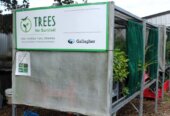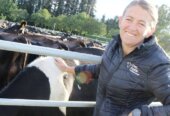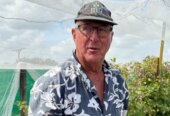Miraka’s story, from its inception in 2010 to its standing today as one of the world’s most sustainable dairy companies – one that achieved B Corp certification earlier this year – was outlined at a talk in Cambridge last week.
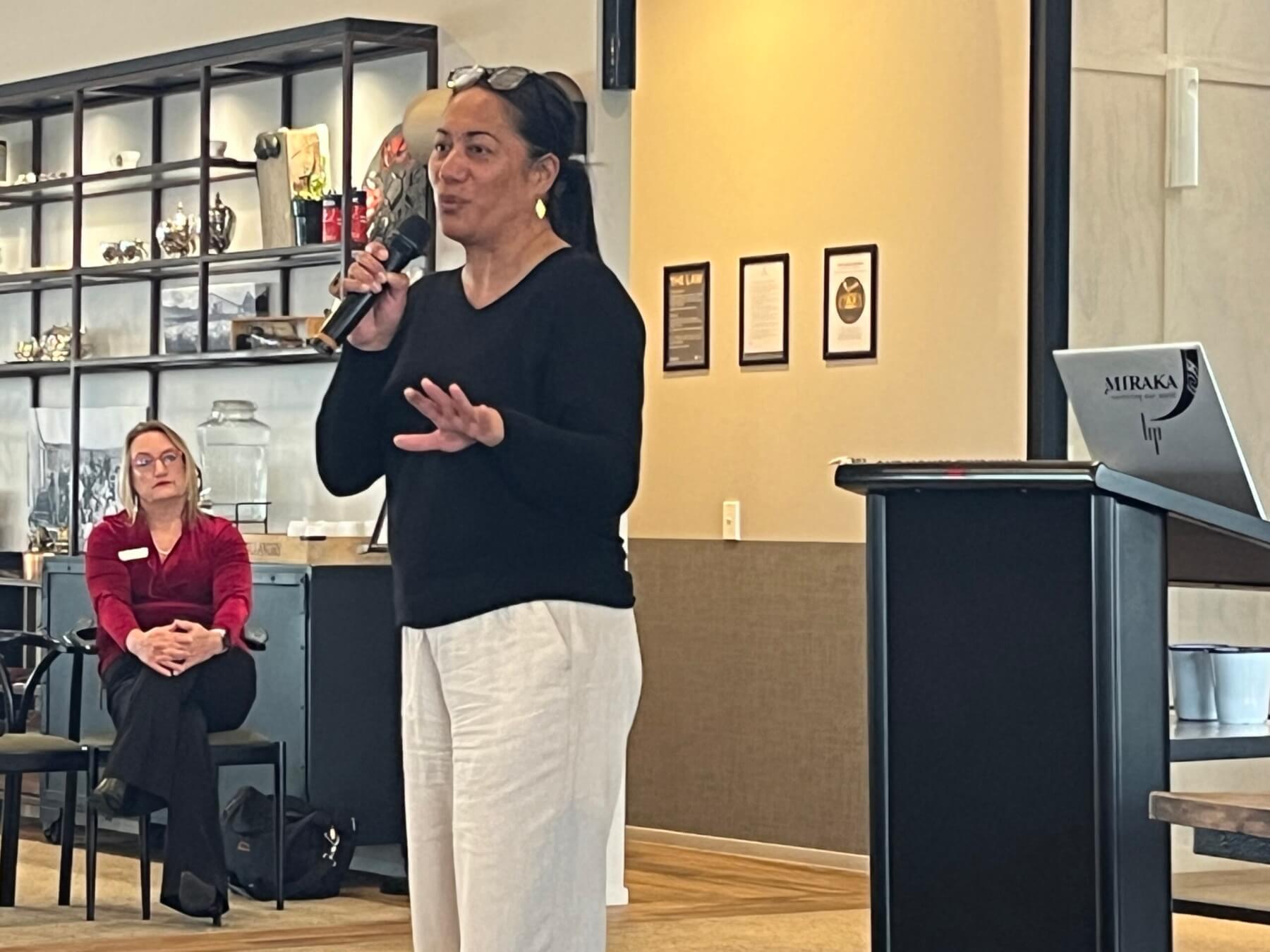
Miraka’s cultural advisor Eileen Bowden speaking to the Cambridge U3A group last week, with Cambridge U3A co-founder Carey Church in the background. Photo: Viv Posselt
Speaking to Cambridge U3A members was Eileen Bowden, Miraka’s Kaihautū (Cultural Advisor) and someone involved from the get-go.
She said Miraka’s founding philosophy aligns with the values espoused by B-Lab, the not-for-profit network that assigns B-Corp status to businesses based on their social and environmental impact.
“The B-Corp values align with our own. We were already striving for excellence in everything we do. It is about balancing profit with purpose… being a force for good.”
She spoke of Miraka’s establishment by a group of Māori trusts and incorporations as being centred on kaitiakitanga, a Māori world view encompassing the care of the land, people and the environment.
A ‘Te Ara Miraka’ excellence programme was later put in place to encourage farmers to strive for excellence in animal welfare and sustainability, and the company has woven its cultural diversity and the core values of ‘Integrity, Tikanga, Innovation and Excellence’, into the fabric of the entire organisation.
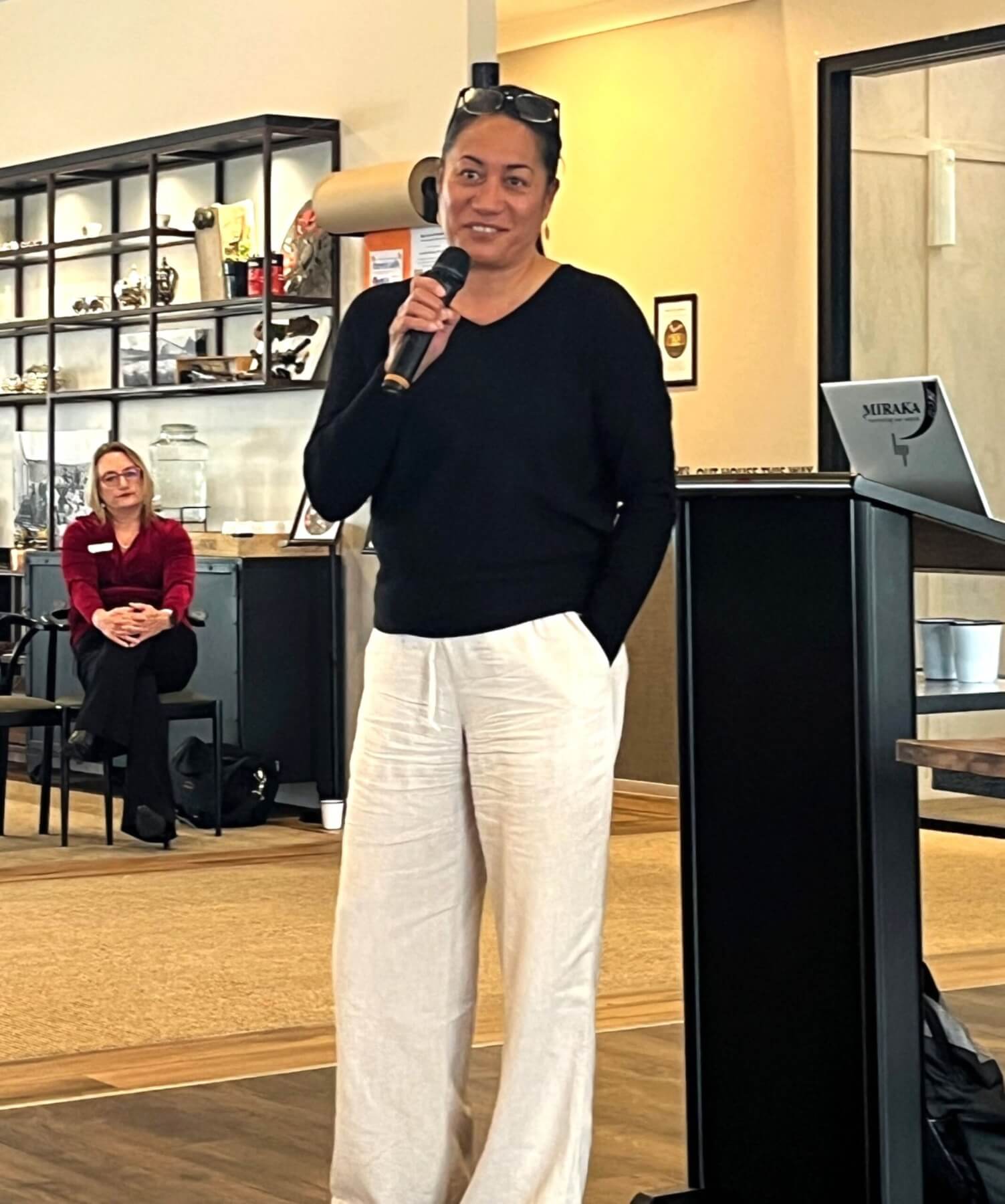
Miraka’s cultural advisor Eileen Bowden speaking to the Cambridge U3A group last week, with Cambridge U3A co-founder Carey Church in the background. Photo: Viv Posselt
The processing plant in the Mokai Valley, 30km outside Taupō, is the world’s first to use geothermal energy and the company exports milk-based products to over 20 countries.
Bowden said last week’s launch of the country’s first dual-fuel hydrogen milk tanker, and the recent introduction of frozen milk concentrate to its list of milk products, speaks to the company’s drive to innovate.
Miraka contributes to the Mokai Valley ecosystem – one in which milk factory by-product goes to a worm farm, the vermiculture from which goes to a native plant nursery which in turn provides riparian planting along local waterways.
Bowden said: “We are at the crossroads of a rapidly changing global environment. Our business success depends not only on financial acumen and strategic planning, but our ability to embrace cultural diversity and uphold the foundational values that transform organisations into industry leaders and world-leading businesses.”
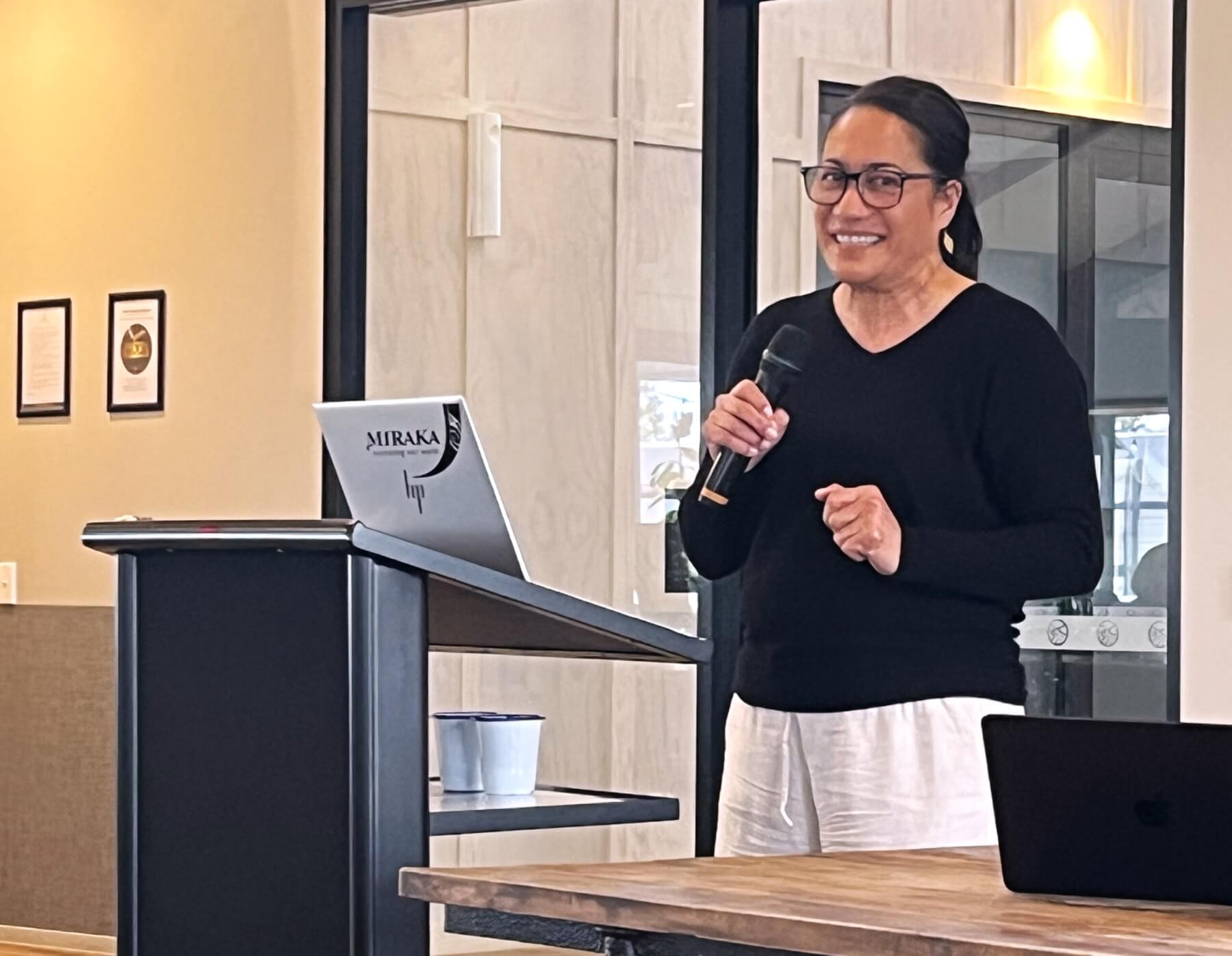
Miraka’s cultural advisor Eileen Bowden speaking to the Cambridge U3A group last week. Photo: Viv Posselt




